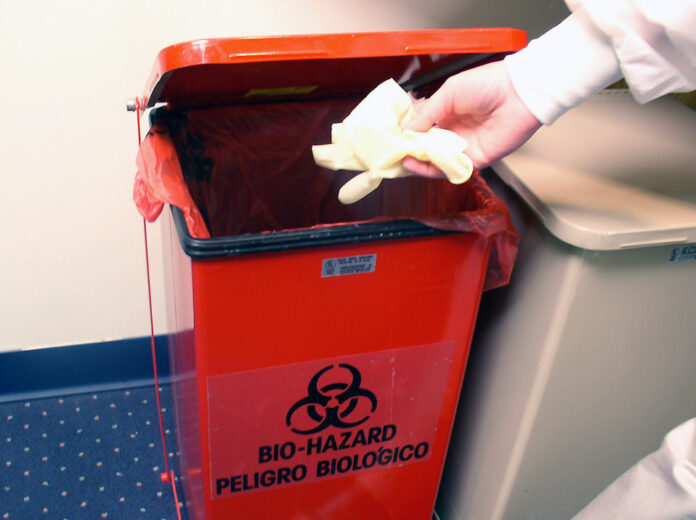Running a healthcare facility has its pros and cons. While you are doing a noble deed by serving people, the work can get hectic with emergency patients rushing. To ensure the safety of your visitor and patients, you must maintain a hygienic environment.
You must accumulate a massive amount of pharmaceutical waste as a medical facility. Disposing of these kinds of waste should be done correctly, or it might affect the environment. Disposing of is more than throwing the waste in landfills. There are proper guidelines and processes for disposing of medical waste.
For proper disposal, you can get in touch with medical disposal companies. However, here are a few tips curated based on the suggestions of Medical sharps disposal companies. Follow these tips so that you can be a responsible citizen.
1. Trust The Professionals
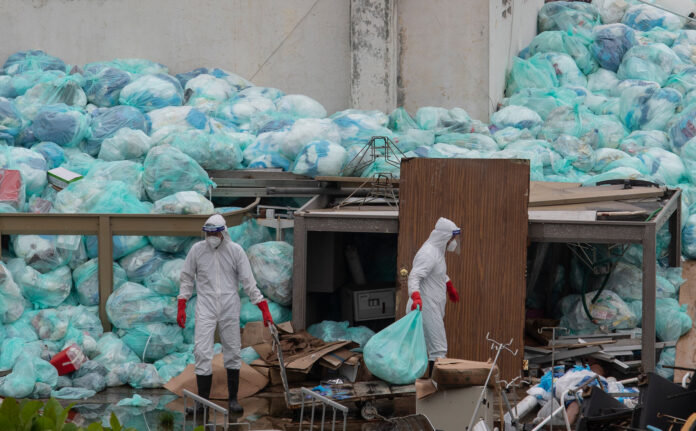
The Department of Transportation has strict rules regarding the movement of medical waste. If something goes wrong while you are taking on the task of doing it, there may be severe consequences.
The professional use specially made leakproof containers to carry the medical waste. These containers are subjected to tests to meet unavoidable puncture and drop requirements. Thus, leaving the whole transportation to a professional will save you time and harassment.
2. Keep Pharmaceuticals Separate
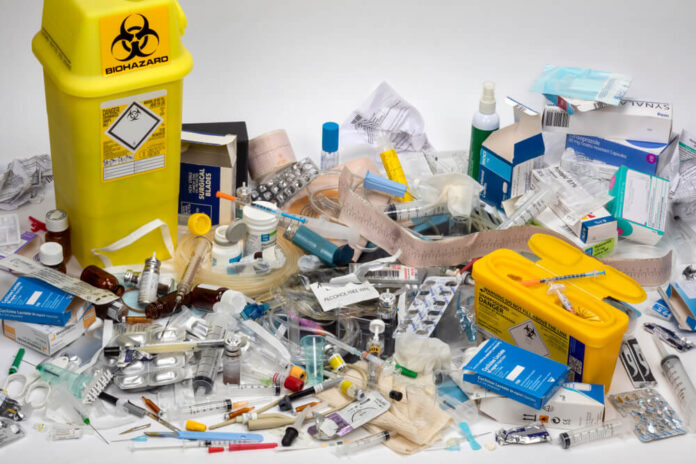
An array of different techniques are involved when it comes to disposing of pharmaceutical waste, which is different from disposing of other kinds of medical waste. The professionals are well-versed in various techniques used to treat pharmaceutical waste.
The professionals are trained to dispose of the waste through constant monitoring and destruction. They follow government guidelines so that any process involved in the destruction of waste does not create environmental hazards.
3. Ensures Secure Storage
While decluttering the medical waste, ensure that you dispose of them in labeled containers. Anything that comes in contact with medical waste becomes medical waste itself. To avoid contamination, it is pertinent that you adopt an organized process of medical disposal system.
4. Organize Training
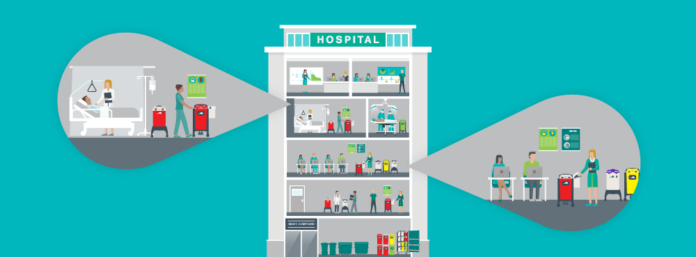
Go through the guidelines by the Occupational Safety and Health Administration (OSHA) once a year to keep yourself updated about the medical waste disposal system. When the professionals come to take the waste, inform them about the blood-borne pathogens and when they will perform the job.
The professional will not only help to take the waste away but also train your employees about the importance of medical waste management.
5. Handle Hazardous Waste consciously
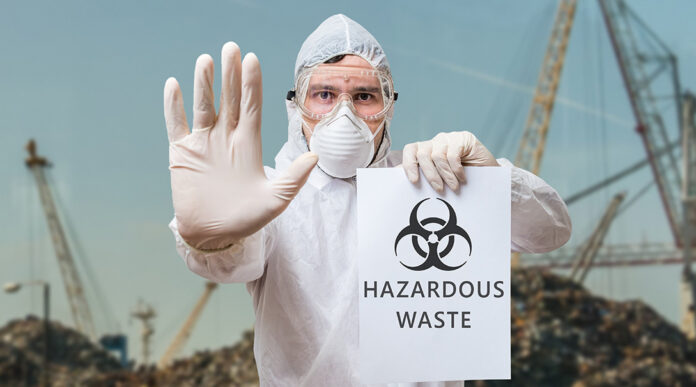
Keep the chemical waste, aerosols, medical, and pharmaceutical waste separate. If you are still determining whether a waste is hazardous, ask for help from professionals. There are defective easy of disposing of different kinds of medical waste. With proper training, it will be easier to muster the disposing skills. Thus, it is highly suggested that you call for professional help.
Now that you have some tips on properly disposing of pharmaceutical waste, here is some information you should know.
Pharmaceutical Waste- What You Need To Know
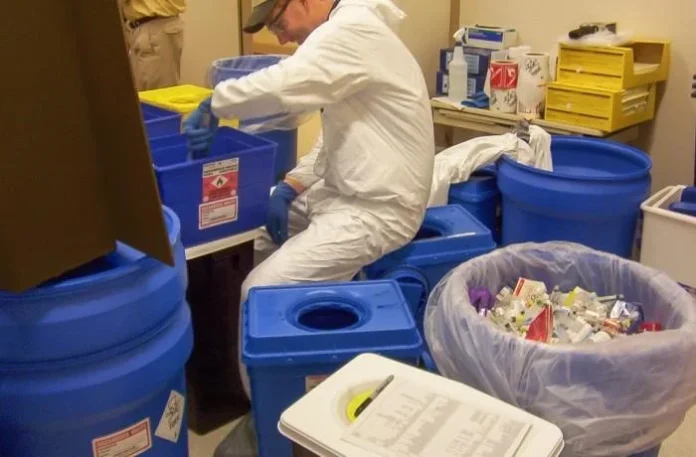
There are guidelines regarding medicines labeled as environmental hazards laid down by the Resource Conservation and Recovery Act. These wastes are termed hazardous pharmaceutical waste or RCRA drug wastes and non-DEA.
The RCRA definitions of waste management include:
- Heavy metal pharmaceuticals like preservative thimerosal
- U-listed drugs like melphalan and lindane
- P-listed drugs like warfarin and nicotine
Non-hazardous Pharmaceutical Waste And Non-DEA
A significant portion of pharmaceuticals makes the following kinds of waste:
- Non-RCRA prescription drugs
- Hormones
- Contraceptive medications’
- Over-the-counter medications like acetaminophen, naproxen, ibuprofen, and a combination of cold medications
- Antibiotics of various classes
The Environmental Protection Agencies that are looking after the medical waste management system state the guideline that healthcare facilities must follow in disposing of pharmaceutical waste without causing any environmental hazard. They further set on educating the healthcare facilities about why proper disposal is imperative for the environment and community.
The Importance Of Color Coding
Simile to the biohazard waste is put into reg bags, and sharps are put away in sharps containers, there should also be a separate container for pharmaceutical waste. According to the guideline, hazardous non-DEA pharmaceutical is black bags or containers, and non-hazardous pharmaceutical is in blue containers.
Furthermore, radioactive waste use contains that have radioactive symbols on the containers. Ensure that these containers are shielded. Other waste, like trace chemo, goes into yellow containers.
Maintaining Compliance
All pharmaceuticals are not hazardous, but you should take proper steps to dispose of them properly. With the numerous pharmaceuticals you are dealing with, it can be pretty challenging to determine how to dispose of them and maintain compliance. Reb Bags will help you dispose of all kinds of pharmaceuticals with proper measures and safety.
Benefits Of Medical Disposal Services
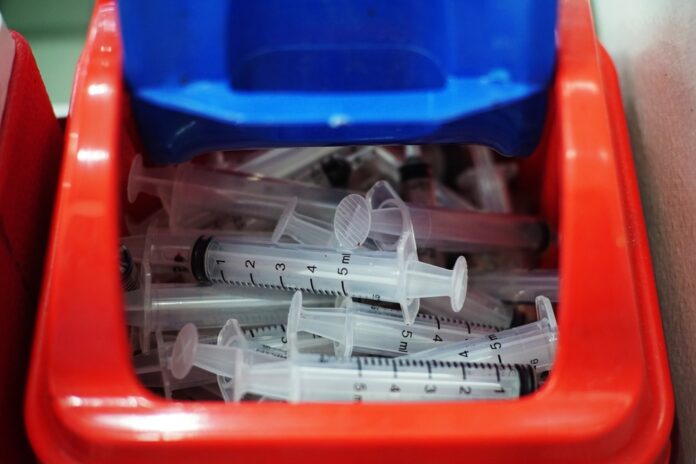
Medical waste management can get a trick with the number of classifications and different processes you need to adopt to dispose of various waste. Hiring a medical disposal professional will help you in the following ways:
- You need to follow the rules and regulations, and hiring a medical disposal service will help you remain compliant.
- Most medical disposal professionals choose an eco-friendly method of disposing of medical waste.
- They will impart compliance training. With the training, you will better understand how to dispose of medical waste without mixing all kinds of waste together.
- Based on the kind of healthcare facility your run, for example, delta clinic, veterinary clinic, aesthetic cosmetology clinic, etc., their professionals will help you choose a container that will be suitable for the medical waste you generate.
Wrapping Up
When you have a healthcare facility, you must keep your staff aware of the proper disposal procedure. Proper training will reduce the mishandling of pharmaceutical waste. Once you have made a disposal system one of your habits, you will feel stress-free and be responsible for the safety of your environment. For further help, you can take help for medical disposal professionals. As discussed above, they will help you figure out proper waste disposal and assist you in abiding by government rules and regulations.
